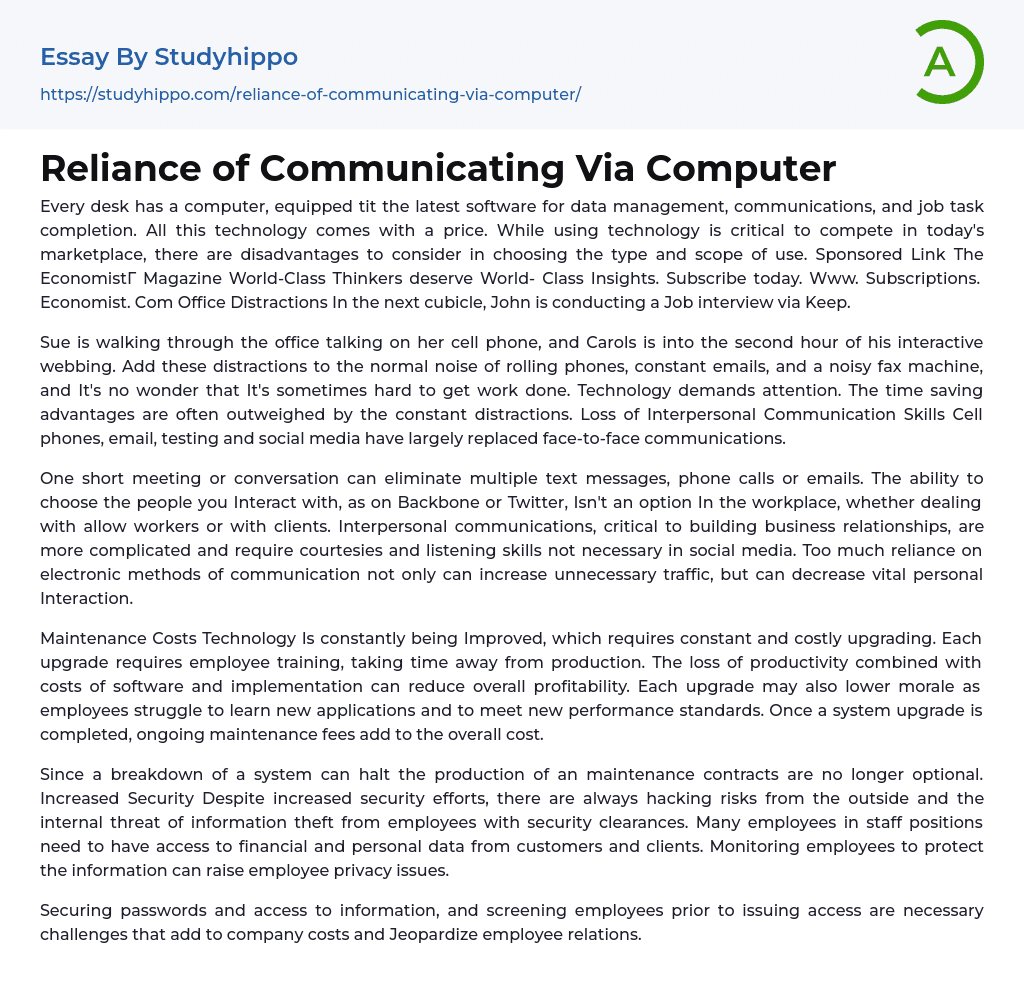Despite the fact that all desks have computers with up-to-date software for managing data, communication, and job tasks, there are drawbacks to consider. In the neighboring cubicle, John is conducting a job interview using Keep while Sue talks on her cell phone and Carols engages in interactive webbing. These distractions, along with ringing phones, emails, and the loud noise of a fax machine make it difficult to concentrate on work. Technology demands attention and constant interruptions often outweigh time-saving benefits.
Furthermore, the use of cell phones, email, text messaging, and social media has replaced face-to-face interaction which has resulted in a decline in interpersonal communication skills. Unlike platforms like Backbone or Twitter where you can choose who you interact with, this choice is not always possible in the workplace. Interpersonal communication plays an essential role in building business relationships as it requires manners and attentive
listening skills that aren't necessary on social media platforms.
Relying heavily on electronic forms of communication leads to unnecessary congestion and undermines important face-to-face interactions. The continuous advancement of technology necessitates ongoing and costly upgrades which result in high maintenance expenses.
Employee training is necessary for each upgrade which takes away productive work time and impacts overall profitability.
In addition, the costs of software and implementation can further decrease profitability. Adapting to new applications and meeting higher performance standards during upgrades can also have a negative impact on employee morale. Ongoing maintenance fees contribute to expenses, making it crucial to have maintenance contracts in place to prevent system breakdowns that could halt production.
Despite heightened security measures, there are still risks of external hacking and internal information theft from employees with security clearances. Man
staff members require access to financial and personal data of customers and clients, which raises concerns about monitoring employees for information protection at the expense of their privacy. Securing passwords, controlling information access, and conducting employee screenings before granting access are important tasks that increase company expenses while posing a risk to employee relationships.
- Computer File essays
- Desktop Computer essays
- Servers essays
- Social Media Negative Effects essays
- Effects of Social Media essays
- Camera essays
- Cell Phones essays
- Computer essays
- Ipod essays
- Smartphone essays
- American Dream essays
- Barriers To Entry essays
- Capitalism essays
- Central Bank essays
- Compensation essays
- Consumerism essays
- Economic Development essays
- Economic Growth essays
- Economic Inequality essays
- Economic System essays
- Economy essays
- Employment essays
- Export essays
- Finance essays
- Free Trade essays
- Gross Domestic Product essays
- Human Development essays
- Income Inequality essays
- Industry essays
- Inflation essays
- International Business essays
- International Trade essays
- Macroeconomics essays
- Materialism essays
- Max Weber essays
- Microeconomics essays
- Minimum Wage essays
- Monetary Policy essays
- Monopoly essays
- Pricing essays
- Profit essays
- Recession essays
- resources essays
- Taxation essays
- Trade essays
- Unemployment essays
- Warehouse essays
- World economy essays
- Cloud Computing essays
- Computer Science essays




